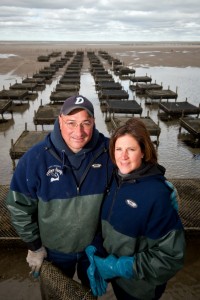Stephanie Chiuve: "People’s personal choices aren’t based on all the facts.”
Submitted on
Welcome to the latest round of “10 Words or Less,” in which I ask brief questions and ask for brief answers. This installment is part of a group of interviews in advance of the Boston Museum of Science’s “Let’s Talk About Food” festival this weekend. Today’s subject is a nutritional epidemiologist at Brigham and Women’s Hospital and the Harvard School of Public Health who will participate in the “Let’s Talk About Nutrition” panel, a part of the festival’s Endless Table of discussions. Remember, please: No counting. 10 words is a goal, not a rule, and it’s not that easy!
Name Stephanie Chiuve (“cue-vee”)
Age 33
Residence West Roxbury
What’s your passion? “My work, identifying healthy diets to promote good health and prevent disease.”
Why did you choose this field? “I’ve always been interested in nutrition and how what we eat makes us what we are.”
What choice is more important: What to eat, or how much? “I would say how much. You can eat healthy food, but if it’s too much, it’s still too many calories.”
Do you think food addiction exists? "Yes."
- Read more about Stephanie Chiuve: "People’s personal choices aren’t based on all the facts.”
- Michael's blog
- Log in to post comments
 Name John Lowell (pictured with his wife and business partner, Stephanie)
Name John Lowell (pictured with his wife and business partner, Stephanie)